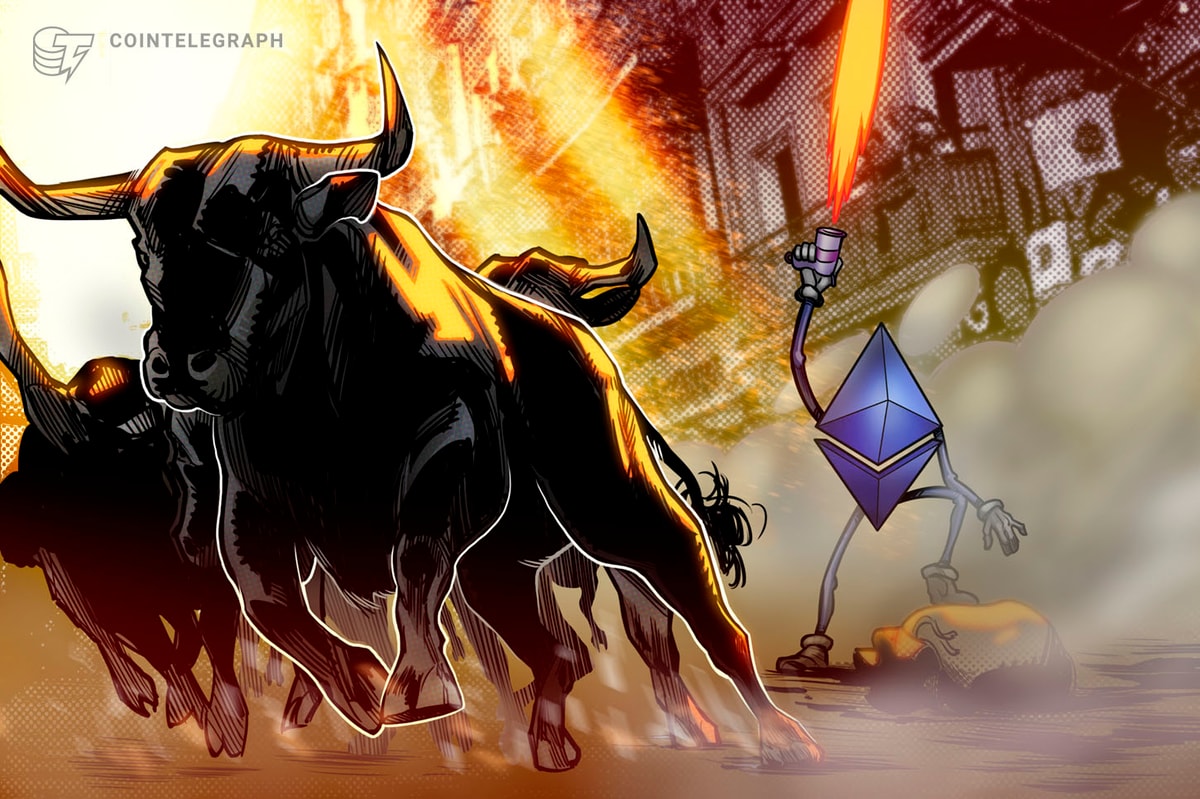Ether (ETH) futures open interest has surged to 9 million ETH as of Jan. 17, its highest level ever. The milestone follows a 10% increase in open interest over two weeks, reflecting a rising appetite for leveraged positions despite Ether’s retest of the $3,000 support on Jan. 13. Traders now question if this movement signals growing bullish sentiment or a setup for heightened market volatility.
Ether futures aggregate open interest, ETH. Source: CoinGlass
Binance, Bybit, and Gate.io collectively control 54% of the market, with the Chicago Mercantile Exchange (CME) lagging at $3.2 billion, or 10% of open interest, according to CoinGlass data. Those conditions highlight Ethereum’s comparatively lower institutional adoption compared to Bitcoin (BTC), where CME commands a 28% share of open interest.
An open interest increase is not inherently bullish, as every long (buyer) is matched by a short (seller) in futures contracts. To determine sentiment, traders analyze the cost of maintaining leveraged positions, such as the futures premium.
Futures premium and options reflect market confidence
Ether futures 2-month annualized premium. Source: Laevitas
The annualized premium for ETH monthly futures stood at 12% on Jan. 17, recovering from 10% on Jan. 12. This metric, which typically ranges from 5% to 10% in neutral conditions, reflects optimism about Ether’s recovery after it underperformed the broader cryptocurrency market by 12% in 30 days.
Ethereum 2-month options 25% delta skew. Source: Laevitas
Similarly, the 25% delta skew for Ether options contracts, which gauges demand for bullish versus bearish bets, reached -4% on Jan. 17. This skew signals that puts (sell) options are slightly less expensive than calls (buy), staying within the neutral range of -6% to +6%.
Together, these indicators suggest resilience in professional traders’ confidence. Still, one needs to assess the leverage demand for retail traders in Ether perpetual contracts, also known as inverse swaps. These instruments closely follow spot prices due to their shorter settlement periods. The funding rate reflects which side — longs or shorts — is demanding more leverage.
Ether perpetual futures 8-hour funding rate. Source: CoinGlass
The indicator presently stands at 0.9% per month, in line with the prior week. Falling within the neutral range of 0.5% to 1.9%, this rate indicates a balanced market sentiment without excessive bullish or bearish leverage, leaving room for future upward price movement.
Macroeconomic factors and World Liberty Financial’s role in boosting ETH sentiment
The broader macroeconomic landscape has also bolstered confidence in ETH markets. Softer-than-expected inflation data for December led to a surge in optimism across financial markets, fueling expectations for multiple Federal Reserve interest rate cuts throughout 2025. A looser monetary policy typically benefits cryptocurrencies, as lower rates reduce the opportunity cost for risk-on assets.
Related: Trump’s first week in office: Will crypto regulation take a back seat?
Adding to bullish sentiment is the involvement of World Liberty Financial, a crypto project with close ties to US President-elect Donald Trump, which has actively purchased cryptocurrencies, including ETH, as recently as December. The firm’s strategy aligns with Trump’s public statements supporting blockchain innovation and digital assets.
Despite ETH’s 11% price drop over the last 30 days, it remains positioned for a rebound, with the potential to test $4,000 in the coming weeks, supported by improving trader sentiment and institutional participation.
This article is for general information purposes and is not intended to be and should not be taken as legal or investment advice. The views, thoughts, and opinions expressed here are the author’s alone and do not necessarily reflect or represent the views and opinions of Cointelegraph.

Leave a Reply